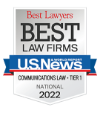Construction Fraud Whistleblower Lawyers
Construction fraud against the government is one of the most common areas of fraud and may cost taxpayers millions of dollars every year.
Construction fraud against the government is one of the most common areas of fraud and may cost taxpayers millions of dollars every year.
The government spends billions of dollars on construction of roads, bridges, buildings, military complexes, hospitals, schools, and more. Too frequently, those projects are the targets of fraud against the government.
You may recognize construction fraud in many forms. Sometimes you may simply observe it on the job site. It can be that obvious. However, spotting other kinds of construction fraud may require knowing the contract terms, vendors, market conditions, and more. The depth and breadth of the law, terms of the contract, and prevailing market may all play a role.
If you think something is wrong, there may very well be fraud happening. Don’t simply wait and watch. Contact us. Let’s talk it through. We know the law and its complexities. What you’re seeing may be nothing, or it may be a multimillion-dollar scam against taxpayers.
Want to dig deeper? Let’s start at the beginning.
The federal False Claims Act (“FCA”) and similar state laws provide protection for, and potentially significant financial incentives to, whistleblowers who take appropriate legal action. Using their inside knowledge of illegal practices, these whistleblowers are often the last line of defense between taxpayers and scam artists.
State and federal governments spend billions every year to build a wide variety of things, including:
The government is particularly vulnerable to construction fraud because there is so much money involved and often little oversight.
In FCA terms, “construction fraud” includes outright fraud and any contracting activity involving a contractor or subcontractor presenting false claims to a government agency to win a contract or get paid under the contract.
In the convoluted world of construction contracts and law, there are many ways fraudsters take a bite out of taxpayer money. If you recognize any of these activities, call us as soon as possible. Here are some common examples of construction fraud against the government. Some of these categories include vast arrays of illegal practices.
Bribery is historically common. Paying someone in the government’s procurement side for favorable treatment is a violation of the law, including the FCA. More importantly, the whistleblower in this situation may be the only way to stop it. Also, note that bribery may be subtle – it doesn’t always involve a bag of money. Conferring benefits and other “perks” can constitute bribery.
If it sounds fishy, you may be on to something. Call us, and let’s talk through your suspicions.
Collusive bidding and bid-rigging are common and more difficult to spot because they often involve complicated corporate structures. If ABC Dynamics is bidding against XYZ Logistics, and far up the chain of ownership, they’re subsidiaries of the same parent company, they can collude to drive the bid price up. Similarly, companies may provide a false estimate by knowingly underbidding a contract to get the work and plan to bill the actual cost later on.
Billing for work that is not performed may be the low-hanging fruit of construction fraud. Perhaps the contract stated that a utility line was to be buried six feet deep, but it was only buried four feet deep – a cheaper, faster result. Maybe the contract states that ten workers will be on-site for eight hours a day, six days a week, but there were never ten workers.
Inflating costs and man-hours can be as simple as people billing for a few minutes they did not work or charging $0.03 for a screw when the screw only cost $0.025. These may seem like minor transgressions when considered alone, but the magnitude becomes apparent when you expand the scope. How many workers are billing for unworked time in a year? How many millions of screws were used in the project? After all, who’s going to notice? If you did, you could be the whistleblower that stops it.
False certification: Contracts often require that companies certify that they have completed a job or task before getting paid. FCA cases often involve allegations that contractors false certify compliance with contract specifications or other legal requirements.
For example, a contractor could be held liable for falsely certifying compliance with contract specifications if it uses a lower quality construction material than agreed in the contract. Or a contractor could be using less of something than prescribed – gravel, concrete, insulation, etc.
False certification of compliance with the numerous legal requirements governing federal contracts is more complicated. There are dozens of laws that may come into play depending on the particular type of contract and the method of fraud. A few examples:
The purpose of bidding on government contracts is to allow the contracting agency to select the best-value bid. Federal law typically requires actual competition among bidding construction companies.
In one type of scheme, several conspiring contractors may agree that one should win the bid, while the others refrain from bidding or submit bids that are likely to be rejected. In exchange, those contractors may be hired as subcontractors. This type of arrangement involves several layers of deception since a prime contractor is typically required to disclose the identities of subcontractors to the government agency.
A contractor is liable to complete work according to contract, including the work of subcontractors. The contractor is also required to bid in good faith. If it does not, it may be in trouble with the False Claims Act.
In a case handled by Bill Nettles when he was the U.S. Attorney for the District of South Carolina, a construction company paid to resolve claims that it had a Disadvantaged Business Enterprise (DBE) do work on its road construction project, when the disadvantaged business actually subcontracted the work out.4
The Department of Transportation’s DBE program is meant to help women and minority contractors, who have faced historical barriers to entry in the construction industry, by providing fair opportunities to compete for federally funded work. In this case, which is an example of set-aside fraud, the whistleblower received 20% of the recovery.1,4
The most common type of defendant is a construction company that functions as the prime contractor in a government construction contract. However, a subcontractor may be liable if the government awarded a contract based on false information that originated with the subcontractor and was communicated to the government through the prime contractor. Company executives are also often defendants in FCA cases.
Regardless of the size of the company or your role in it, if you feel like something suspicious is happening and the government is being defrauded, contact us.
There’s a right and wrong way to report fraud, especially if you want the protections offered by the federal False Claims Act or its state equivalents, if applicable. We urge you to speak with us first.
Whistleblower protection is powerful and something you should take advantage of for as long as possible. On top of that, we add our You-First Policy to help put our clients’ minds at ease and protect their best interests throughout the process of their whistleblower case.
The federal FCA allows a whistleblower to receive up to 30% of what the government recovers in a successful lawsuit brought by the whistleblower, depending on the government’s role in the case.
To qualify for this reward, a whistleblower (also known as the “relator”) must comply with a range of procedures, including several related to confidentiality and being the “original source” of the incriminating information. You’re in the best position to receive an award when you are first to bring fraud to the government’s attention.
In other words, a relator who wants to obtain an award should engage a construction fraud whistleblower attorney as soon as they suspect fraud to ensure all legal requirements are followed at every stage of the reporting and litigation.
If you suspect construction fraud against the government, let’s talk. We are here to help put you at ease as we try to help you determine — confidentially and discreetly — if you should move forward with a whistleblower/qui tam claim. You’re not alone, and there’s no need to struggle with a decision. Our You-First Policy means we’re protecting your best interests and taking stress off you. We will try to protect you regardless of your involvement.
Contact us or call 1-888-292-8852.
If we decide to take your case and you don’t get a reward for reporting fraud, you owe us nothing.2
“Bill has the ability to ‘think outside the box’…which makes him extremely effective as an advocate for his clients.” 1 — Attorney who previously worked with Bill





If you’re wondering if it’s a good idea to speak with a whistleblower lawyer about what you know, let us set the record straight.
"*" indicates required fields